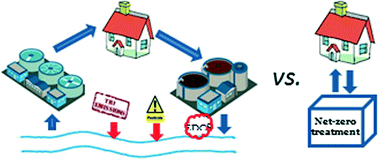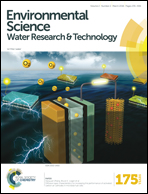Net-zero water management: achieving energy-positive municipal water supply
Abstract
Net-zero water (NZW) is a new vision for municipal water management, in which significant water is neither imported to, nor exported from the service area, i.e. local water independence. While such a system has long been possible in areas of sufficient water supply and/or sparse population, it is now becoming possible and economical for municipal systems in virtually any modern watershed, through the use of emerging direct potable reuse (DPR) technology. In fact, current implementations are producing design and operating data. Moreover, distributed NZW systems recycling at a high rate are projected to be capable of energy-positive operation, saving more domestic hot water energy than is consumed in treatment. However, NZW and DPR approaches vary widely in terms of source water, source segregation, treatment, and recycling rate. In this study, a workshop was convened to assemble and synthesize a broad cross-section of current NZW and DPR experience, to develop recommendations for water management planning. It was concluded that technology is currently emerging to support widespread NZW management. Recommendations included the introduction of NZW systems into new construction, to be supported by controlled demonstration projects over periods of two years or more; development of supporting regulatory structure with public engagement; development of real-time water quality monitoring devices; and retention of the term “net-zero water” to signify a new water management vision to advance water and energy autonomy.



 Please wait while we load your content...
Please wait while we load your content...